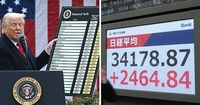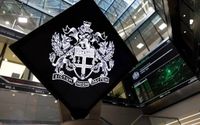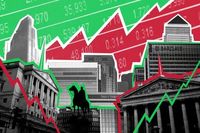In a dramatic turn of events, the FTSE 100 index surged nearly 6% in early trading on April 10, 2025, following US President Donald Trump’s announcement of a 90-day pause on reciprocal tariffs. This decision has sparked a broad stock rally across global markets, as investors responded positively to the news that tariffs would be temporarily reduced for more than 75 countries, excluding China.
Asian markets also reacted favorably, with Japan's Nikkei share average climbing 8.2% and the Hang Seng Tech Index gaining 3.1%. The pan-European STOXX 600 jumped 5.9% after suffering significant losses in the days leading up to the announcement.
The backdrop for this rally is the recent imposition of a baseline tariff of 10% on nearly all foreign imports to the US, which was enacted on April 5, 2025. This move had initially sent shockwaves through international markets, contributing to a 12.8% drop in the FTSE 100 and an 11% decline in the FTSE 250 over the previous week. However, the announcement of the tariff pause has breathed new life into the markets.
Shares in Barclays soared by nearly 30% at one point, reflecting the bank's significant exposure to the US economy. By the time trading began, Barclays shares had risen 14% or 33.5p to 275.2p. Other companies also saw substantial gains; engineering giant Melrose Industries climbed about 14%, while Glencore and NatWest rose by 11% and 9%, respectively.
Despite the overall positive sentiment, not all companies benefited from the rally. Tesco, the UK's largest supermarket chain, forecast lower profits due to intensifying competition in the retail sector and saw its shares fall by 7% to 310.8p. Sainsbury’s also experienced a decline, dropping 5% to 223.8p.
Market analysts are closely monitoring the situation, with some expressing caution. Chris Beauchamp, chief market analyst at IG Group, noted that while the markets are reacting positively to the tariff pause, the underlying volatility suggests that investors should remain vigilant. “Market volatility is likely to remain elevated in the weeks ahead as investors assess rapidly shifting tariff developments,” he warned.
In the wake of the tariff announcement, traders have adjusted their expectations regarding the Bank of England's interest rate cuts. Markets are now pricing in three cuts by the end of the year, with a 75 basis point reduction expected. The first cut is widely anticipated next month, with subsequent cuts possible in August and November.
The UK government has remained relatively stable amid the turmoil. Chancellor Rachel Reeves is scheduled to visit Washington at the end of April for the International Monetary Fund's spring meeting of global finance ministers, where she will seek to negotiate favorable terms for the UK. Additionally, a UK-EU summit on May 19 aims to refresh trade relations and facilitate easier business transactions.
Downing Street has emphasized a calm approach to negotiations with the US, stating, “A trade war is in nobody's interests.” Home Secretary Yvette Cooper acknowledged the global instability but reassured that the government would maintain a steady course in its trade policy.
Meanwhile, the recent economic climate has not been without its challenges. The cost of government borrowing has hit its highest level in nearly 30 years, with government gilts rising to 5.65% on April 9, 2025. This situation has raised concerns about potential spending cuts or tax hikes in the upcoming budget, as the government grapples with the financial implications of the current economic landscape.
As the dust settles from the recent market fluctuations, investors are left to ponder the long-term implications of Trump's tariff policies. While the pause has provided a temporary reprieve, the underlying tensions between the US and China continue to loom large. Trump's decision to increase tariffs on Chinese imports to 125% has drawn sharp criticism, with China's Foreign Ministry spokesperson Lin Jian accusing the US of acting out of "selfish interests" and warning that the move would ultimately lead to failure.
In conclusion, the recent pause on tariffs has sparked a significant rally in the FTSE 100 and other global markets, providing a glimmer of hope amid ongoing economic uncertainty. As negotiations continue and the global economic landscape evolves, stakeholders will be watching closely to see how these developments unfold.







